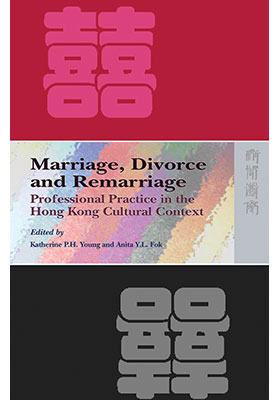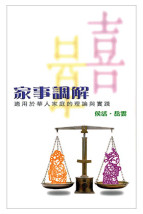Marriage, Divorce, and Remarriage
Professional Practice in the Hong Kong Cultural Context
(結婚、離婚與再婚:香港文化下的專業實踐)
ISBN : 978-962-209-741-4
May 2005
320 pages, 6″ x 9″
- HK$160.00
Ebooks
Also Available on
Although the ideal of companionate marriage has gradually been established in Hong Kong, demographic trends from the 1980s reflect greater marital and family instability. In the years to come, adult fulfilment is likely to be found in various ways: through marriage, divorce, remarriage, or the single state. Each of these has its own potentials, tensions, and prospects for growth and development. Each offers different though viable life styles through which people can develop in adulthood. These trends call for a rethinking of marriage and of our expectation that marriage and the family bond will continue to serve as the relational context of adult living.
This collection on marital work offers the means to rethink marriage by examining the ways husbands and wives cope with the demands and dilemmas of their relationship, from diverse parenting, forgiveness, coping with childhood abuse, infidelity, disenchantment and distancing, to uncoupling in divorce, and re-coupling in remarriage. Each chapter addresses aspects of these issues, with a focus on the recovery, reinvention and reconstruction of the self to meet the many challenges arising from the relationship and from life circumstances.
“This book is a milestone in knowledge building in the field of family practice in Hong Kong and Chinese society. Indeed, it will become a benchmark reference work for the further exploration into the concepts, meanings and practice of marriage counselling and divorce mediation. The views and findings can be used to re-examine our beliefs, aspirations and culture of marriage and family in Hong Kong and other Chinese communities.” —Professor Joe Leung, University of Hong Kong
“The book describes and analyzes divorce and remarriage in the Chinese cultural context, some chapters with systemic step-by-step illustrations vis-à-vis cases in Hong Kong society. It is valuable to academics, professionals, and the general public.” —Professor Monit Cheung, University of Houston





